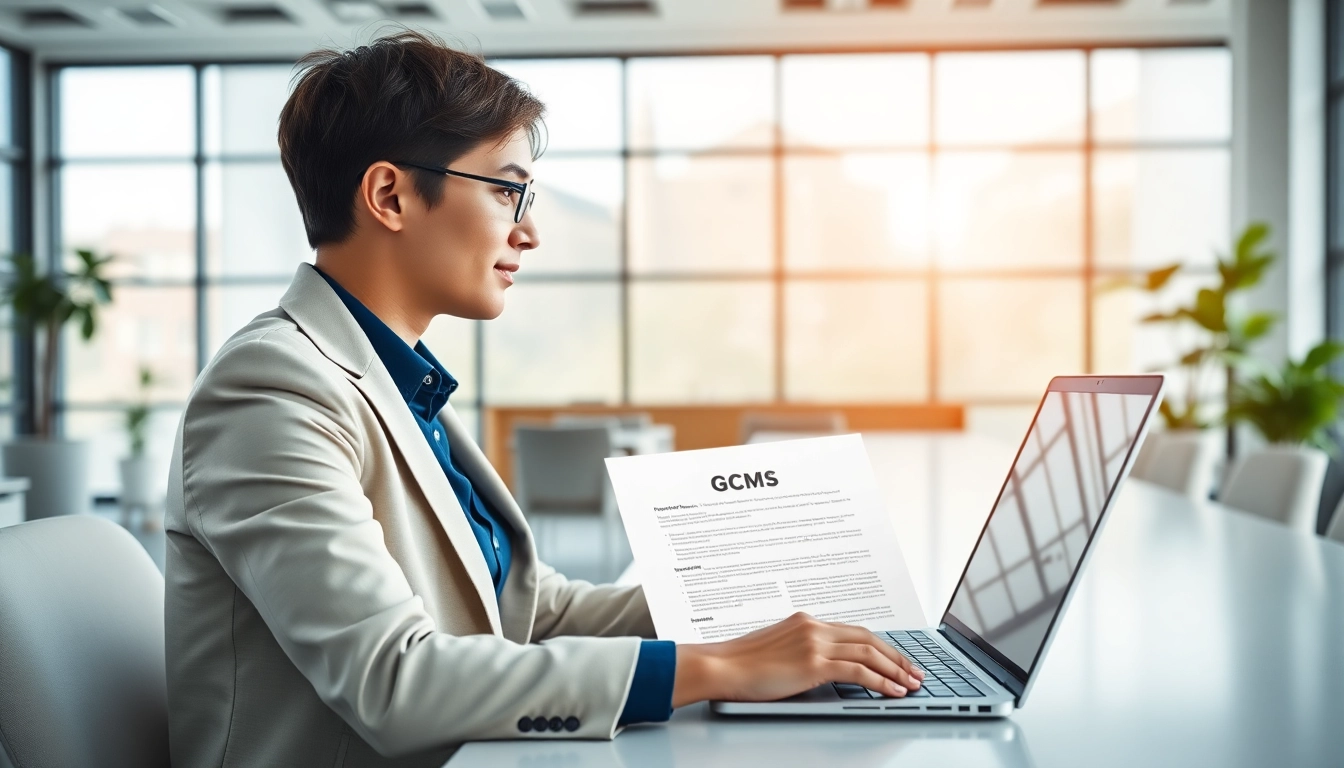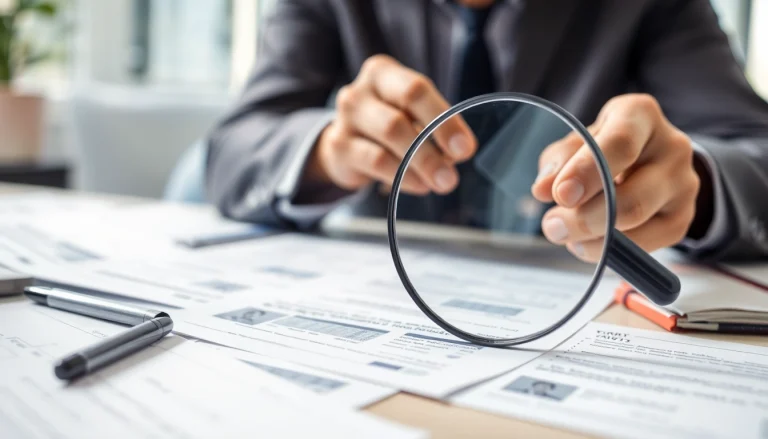
Understanding GCMS Notes
What Are GCMS Notes?
The Global Case Management System (GCMS) is an electronic system used by the Canadian government to manage immigration applications. GCMS Notes are detailed records created by immigration officers as they process these applications. They contain vital information regarding an applicant’s status, decisions made by officers, notes about interviews, and other relevant correspondence. Essentially, GCMS Notes provide insight into the decision-making process behind immigration statuses, making them a crucial tool for applicants seeking clarity on their cases.
Importance of GCMS Notes for Immigration Applications
Understanding the importance of GCMS Notes cannot be overstated for individuals navigating the complex immigration landscape in Canada. These notes can reveal why applications were approved or denied, helping applicants identify any weaknesses or areas that may need attention in future submissions. Furthermore, having access to this information enables applicants to prepare stronger appeals and follow-ups, ultimately improving their chances of a successful immigration outcome.
Common Uses for GCMS Notes
GCMS Notes serve various purposes for immigration applicants, including:
- Clarity on Application Status: Applicants can confirm whether their application is still pending, approved, or denied.
- Insight on Officer’s Decision: Understanding the rationale behind the immigration officer’s decision can guide future actions.
- Preparation for Appeals: Knowledge of the specific reasons for denial can help applicants prepare their appeal effectively.
- Follow-up Queries: GCMS Notes can clarify what additional information officers may require for completeness in cases still under review.
How to Get GCMS Notes
Step-by-Step Guide to Requesting GCMS Notes
Obtaining your GCMS Notes involves a systematic process. Here’s a step-by-step guide to efficiently get gcms:
- Determine Eligibility: Ensure you are eligible to request GCMS Notes. Generally, applicants can request their own notes, and authorized representatives can request on behalf of others.
- Gather Required Information: Collect personal information such as your full name, date of birth, and application details like the file number.
- Complete the Request Form: Fill out the Access to Information Request Form (ATIP Form) accurately to avoid delays.
- Submit the Form: Submit your completed form, along with any required documentation, to the appropriate department (IRCC or CBSA).
- Payment: Include the processing fee, which is typically around $5. Ensure to check for any updates on fee structures.
- Monitor Your Request: After submission, keep track of your request status through the relevant channels available for updates.
Required Documentation for Requests
When requesting GCMS Notes, it’s essential to submit the right documentation to avoid unnecessary delays. Key documents typically include:
- Completed Access to Information Request Form.
- Proof of identity (e.g., a copy of your passport or driver’s license).
- Details of your immigration application, including your Unique Client Identifier (UCI).
- Any additional identification documents requested by the IRCC or CBSA.
Typical Processing Times and Fees
After submitting your request for GCMS Notes, you might wonder how long you’ll have to wait. Processing times can vary, but generally, you can expect:
- Standard processing times range from 30 to 45 days, depending on the volume of requests being handled by the department.
- In certain circumstances, processing may take longer due to the complexity of your case or other unforeseen delays.
The processing fee for your request is approximately $5, which should be included with your submission. Note that fees may be subject to change, so it’s wise to verify the latest information from official sources.
Best Practices for Requesting GCMS Notes
Top Mistakes to Avoid When Applying for GCMS Notes
Understanding common pitfalls can help ensure a smoother application process for your GCMS Notes. Here are some mistakes to steer clear of:
- Incomplete Forms: Ensure all sections of the Access to Information Request Form are fully completed.
- Incorrect Personal Information: Double-check that all personal details are accurate; even small errors can cause delays.
- Failure to Include Documentation: Always attach required identity proof and application details to prevent straightforward rejections.
- Neglecting to Pay the Fee: Don’t forget to include the processing fee, or your application will be returned.
Maximizing the Information Gained from GCMS Notes
Once you receive your GCMS Notes, it’s crucial to extract as much value from them as possible. Here are some techniques for maximizing the information you gain:
- Thorough Review: Spend adequate time reviewing all sections of your notes; look for insights beyond just the decision outcome.
- Highlight Key Points: Mark important details such as comments from the immigration officer or requests for further information.
- Seek Professional Help: If you find the terminology or context difficult to understand, consider consulting an immigration expert.
Using GCMS Notes in Appeals and Follow-ups
GCMS Notes can be invaluable when preparing for appeals or follow-ups with immigration authorities. Here’s how:
- Identifying Weaknesses: Use notes to determine specific areas that led to your denial; address these in your appeal.
- Supporting Documentation: Attach your GCMS Notes to your appeal to substantiate your arguments or clarify previous misunderstandings.
- Follow-up Queries: Reference the notes in direct inquiries with immigration officials to expedite your resolution process.
Analyzing Your GCMS Notes
Understanding the Terminology in GCMS Notes
GCMS Notes contain specialized vocabulary that may pose challenges for those unfamiliar with immigration jargon. To effectively analyze your notes:
- Familiarize with Common Terms: Understand frequently used terms, such as “refusal,” “further documents required,” or “assessed.”
- Make Use of Online Resources: Leverage glossaries and guides available through immigration services websites to decode complex terminology.
Key Sections to Focus On
When reviewing your GCMS Notes, pay particular attention to specific sections that can provide crucial insights:
- Assessment Details: Information on how the immigration officer assessed your case, including criteria considered.
- Decision Rationale: Comments that explain why your application was approved or denied.
- Correspondence Logs: Any communications between you and IRCC that are documented, which may be useful for follow-ups or appeals.
Identifying Red Flags in Your Notes
While analyzing your GCMS Notes, being able to identify red flags can be essential in preemptively addressing concerns before they hinder your application. Here’s what to look for:
- Inconsistent Information: Look for discrepancies in personal information or data provided in different sections.
- Frequent Requests for Information: This might indicate that the immigration officer had doubts about your application or the validity of your claims.
- Negative Remarks: Any comments suggesting concerns about your application from an immigration officer should be taken seriously.
FAQs about Getting GCMS Notes
How Long Does It Take to Get GCMS Notes?
Typically, you can expect to receive GCMS Notes within 30 to 45 days after submission. However, processing times can fluctuate based on various factors such as the volume of requests or specific complexities of individual cases.
What if My GCMS Notes Are Incomplete?
If you find that your GCMS Notes are incomplete, you should first review the requested documents to ensure that you did not overlook any essential information. If the notes lack critical sections or make no sense, you may file a complaint or submit an additional request for clarification through IRCC or CBSA.
Can I Request GCMS Notes for Someone Else?
Yes, you can request GCMS Notes on behalf of someone else, provided that you have their consent to do so. It requires a signed authorization letter from the individual whose notes are being requested, along with their identification documents.






